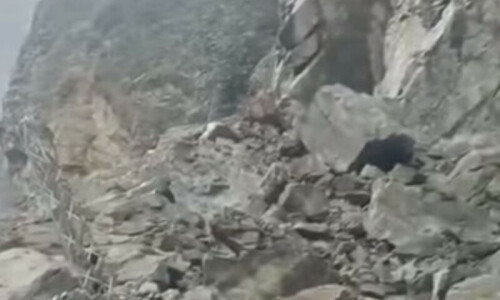RECEP Tayyip Erdogan is on a roll. Despite Turkiye having emerged — along with Israel — as a major geopolitical winner of the fall of the Assad regime, he isn’t taking any time off to rest on his laurels.
Shortly after the fall of Damascus, Erdogan brokered a deal between Ethiopia and Somalia, resolving a dispute which had arisen due to landlocked Ethiopia’s plans to build a port in Somaliland, a breakaway republic Somalia considers part of its territory. This was a flashpoint that had regional implications, given that Egypt had aligned with Somalia as a response to Ethiopia building a dam on the Nile, something that Cairo viewed as a threat.
Erdogan then offered to step in to ‘resolve the disputes’ between Sudan and the UAE, which has been accused of funding and arming Sudanese rebels, in particular the murderous Rapid Support Force headed by Hamdan Dagalo, who is fighting against the de facto ruler of Sudan, Abdel Fattah al-Burhan.
This is also a case of Erdogan trolling the UAE, given that ties between the two countries aren’t exactly stellar and that the Turkiye-UAE rivalry is one of the greatest untold stories of modern West Asia. With this offer, Erdogan sends a clear signal that he isn’t quite done with his project to expand Turkish influence. Indeed, one can safely anticipate that he will next focus on Libya, where Turkiye is firmly entrenched and is backing the Tripoli-based Government of National Accord against Gen Haftar’s Libyan National Army, which is backed by the UAE, among others.
The fact that the US must court Turkiye in Syria is a net gain for Erdogan.
As for Syria, Turkiye isn’t shy about the extent of its involvement; the Turkish intel chief Ibrahim Kalin visited Syria just five days after the fall of Damascus, making him the first senior foreign official to visit the Syrian capital after the fall of Bashar al-Assad. He also held talks with Hayat Tahrir al-Sham (HTS) chief Jolani, the de facto leader of the new Syria.
Turkiye’s support of the HTS is no secret. It was Turkiye that green-lit the offensive that led to the collapse of the Syrian Arab Army. The offensive was timed to take advantage of the depletion of Assad’s allies, Iran and Hezbollah, due to their war with Israel, and came at a time when the Russians were unable or unwilling to rapidly deploy military assets. In any case, the speed of the collapse made any kind of intervention impossible. Geopolitics is rarely a zero-sum game, and while both Iran and Russia are subtly signalling their willingness to engage with the new regime, it is clear that the road to engagement with Damascus will run through Turkiye, accruing even more diplomatic capital for Erdogan.
But while HTS may be more an ally and less a proxy, the faction firmly under Turkish control is the Syrian National Army (SNA), an umbrella group of fighters fully armed and backed by Turkiye, which is also in possession of a ‘buffer zone’ on Syrian soil. These fighters are now engaged with Turkiye’s bitter foes, the Kurdish Syrian Democratic Forces (SDF) which, in turn, are backed by the US and in control of the bulk of Syria’s oil-producing regions.
No sooner had Damascus fallen that the SNA, reportedly supported by Turkish drones and artillery, advanced on Kurdish positions, seizing Tal Rifaat and Manbij. Panicked, the US sent Secretary of State Antony Blinken to negotiate with Turkiye to protect their Kurdish allies, even as Turkiye’s foreign minister declared that the SDF’s elimination is a ‘strategic objective’ for Turkiye.
While this may seem like a diplomatic dilemma, the fact is that this is the ‘playing both sides against the middle’ stratagem that Erdogan excels at; consider that Turkiye supplied Ukraine with cutting-edge military hardware, while also buying S-400 air defence systems from Russia and then leveraging Western fears of a closer alignment with Moscow to win concessions elsewhere.
The fact that the US must court Turkiye in Syria is a net gain for Erdogan, who can potentially extract benefits by showing flexibility while making it clear that it is he who calls the shots.
There are other potential gains, especially when you consider that Syria needs to be rebuilt and rearmed, and that Turkiye is best positioned to fulfil these needs. In anticipation of this windfall, we saw the share prices of Turkish steel and cement manufacturers rise by 10 per cent, and the booming Turkish defence industry is no doubt drawing up plans to supply the hardware the new Syrian army will need.
There’s more: with Syria as an ally/client state, Turkiye’s dream of becoming an energy hub — already boosted by the Trans-Anatolian pipeline supplying Azerbaijani gas to Europe — comes another step closer to reality. With a friendly regime in place in Damascus, construction of the proposed Qatar-Turkiye-Europe natural gas pipeline becomes a real possibility. For now at least, Ankara is ascendant.
The writer is a journalist.
Published in Dawn, December 16th, 2024










































